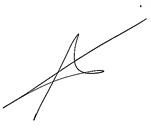FRANÇOISE DOLTO

‘Psychoanalysis and Paediatrics’, ‘Female Sexuality’, ‘The Unconscious Body Image’, ‘The Main Stages of Childhood’ and ‘The difficulty of Living’ are some of the essential books by someone who was probably the most famous psychoanalyst in France thanks to the fact of introducing and popularizing these issues.
Dolto, this pediatrician and psychoanalyst lived from 1908 to 1988 and just developed an important work by merging her two specialities: childhood and analysis. She not only founded along with Jacques Lacan, the Freudian School of Paris, plus the French Society of Psychoanalysis, but she was also the daughter, wife and mother of renowned personalities in the fields of politics, therapies, music and psychoanalysis.
Dolto reached her own view, that would change therapy for and with children. Specifically, she insisted on the individual beginning psychoanalysis in their childhood, when the development of a person is mostly defined. The great strength of child psychoanalysis, according to this specialist, is the possibility to speak and interpret the child using their own language; she even suggests that there is a pre-verbal language, which is the body one, and that the expression of the body of a child provides meanings of their desires and fears.
Associated with this thesis and as an active feminist, she also made for the influence of the unconscious body image and self-esteem, especially for a healthy female sexuality.
Françoise Dolto was the first to analyze the attitude of children and teenagers from divorced parents and parent-child relationships as a basis for building the individual personality. Nowadays, her theories are still useful in various therapies to help parents and children communicate and understand one another, and to free women from roles of the past. Here are some of her ideas:
In a world of surplus, of wealth unequally shared, our only own property is precisely the love between human beings.
The fear of death is ultimately the fear of living.
Great maturity is needed to be a father [mother], because it is about being aware that this is not a position of power, but a position of having, and we have no right to expect exchange.
Putting into words how we feel, both on sensitivity and on hatred, that’s human.
Every human group has their rich communication, mutual support and solidarity for a common goal: the development of each one in respect to differences.
Children are the symptoms of their parents.
Only a few individuals who, in their history, get their inner child not to abandon them, manage to create something and get things moving on by leaps, discoveries, emotions that contribute to society, opening new doors, new windows.
A baby whose family regret it as it is, that wants it to look like some other, who wants it to have this nose so and so, regret its sex or the colour of its hair, runs the risk of being marked for life while, people think they do not understand anything.
To properly understand what the inopia is, the weakness of adolescence, take the image of lobsters losing their shells: hiding under the rocks at the time, while secreting their new shells to acquire defenses. But while they are vulnerable if they are beaten, they are wounded forever; their shells will overlap the wounds and scars, although these won’t be erased.
I highly recommend the works and to get to know Françoise Dolto better.
Have a happy week,
Álex


Para dejar un comentario en cualquiera de los artículos del blog deberás identificarte con tu perfil de usuario de Facebook y podrás decidir si quieres que se publique en el Sitio Web y además en tu muro de Facebook. SID & FORTUNE, S.L.U. es la Responsable del Tratamiento de tus datos, con la finalidad de moderar y publicar tu comentario con tu nombre. En ningún caso se publicará tu correo electrónico.
Tienes derecho de acceso, rectificación, supresión, limitación, oposición al tratamiento y portabilidad. Puedes ejercitar tus derechos en [email protected]. Más información en la Política de privacidad.